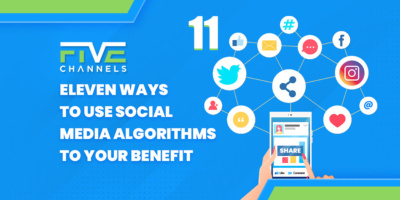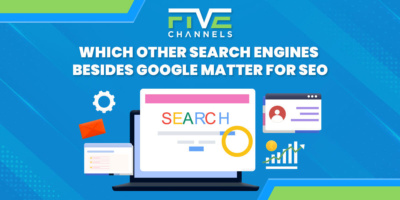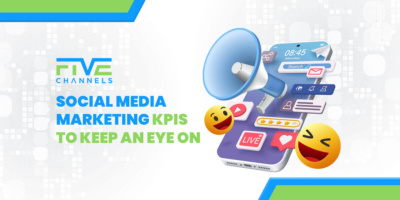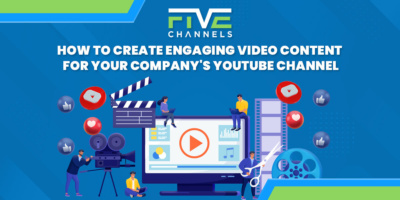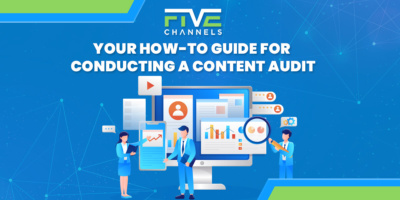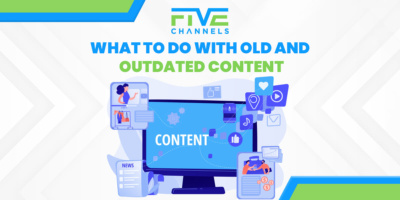Artificial Intelligence (AI) is transforming the business world, offering tools that streamline operations and spark creativity. As one of the fastest-growing trends, AI is helping businesses save time and resources while driving innovation.
One of the most popular ways businesses are using AI is for content creation, making it easier than ever to produce engaging blogs, social media posts, emails, and more with impressive speed and efficiency. From crafting compelling marketing materials to organizing product descriptions, AI opens up a world of possibilities for businesses to connect with their audiences.
In this blog, we’ll explore how you can leverage AI to create impactful, high-quality content for your business.
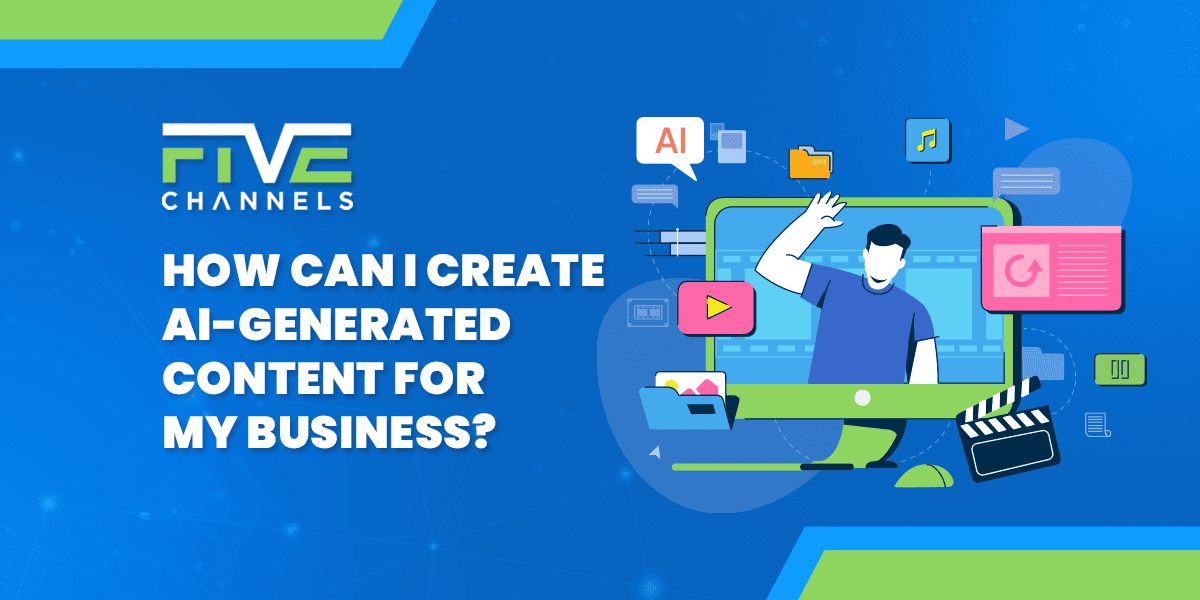
Can I Customize AI Content for My Audience?
Absolutely! AI content can be tailored to perfectly fit your audience and align with your brand. By leveraging the capabilities of AI, you can create content that resonates deeply with your target demographic. AI can be trained to understand your brand identity, values, and the unique tone of voice that defines how you communicate with your audience.
Through customization, AI can learn what matters most to your customers whether it’s the topics they care about, the style they prefer, or the channels where they engage. It can also adapt to reflect your business’s personality, from formal and professional to casual and conversational. This tailored approach helps your content feel authentic, making your audience feel more connected to your business.
AI tools also offer flexibility, allowing you to focus on what makes your brand stand out while still addressing audience interests. Over time, AI becomes even more aligned with your goals, continuously refining the content it produces based on your input and feedback. This creates a consistent, engaging experience that strengthens your relationship with your audience and helps your business stand out in a crowded marketplace. Customizing AI content is a powerful way to deliver messages that truly resonate with your customers.
Should I Trust AI-Generated Content is 100% Accurate?
No! AI-generated content should not be trusted as 100% accurate. While AI is incredibly advanced and capable of producing well-written and engaging content, it doesn’t have the ability to fact-check or verify the information it generates. Instead, AI relies on patterns and data it has been trained on, which may include outdated, incomplete, or even incorrect information.
The issue lies in how AI gathers and processes data. It pulls from a wide range of sources, and while it’s designed to synthesize that information effectively, it doesn’t understand the context or nuances behind the facts. This means AI can occasionally combine conflicting data or present assumptions as truth. Additionally, it lacks real-time verification, so the information it produces may sound authoritative but could be misleading or outright false.
For any content involving facts, statistics, or important details, human oversight is essential. You should always fact-check AI-generated content before using it, especially in fields like healthcare, law, or finance, where accuracy is non-negotiable. Think of AI as a powerful assistant that accelerates the creation process, but not as a flawless source of truth. Trusting it blindly can lead to errors that could impact your credibility or message.
How Specific Should I Be With My Prompts?
Very! The more specific you are with your prompts, the better the results AI can deliver. AI works by analyzing the details you provide, and the clearer your instructions, the closer the output aligns with your needs. Think of it like giving directions—the more precise you are, the easier it is to reach the exact destination you have in mind.
Specificity isn’t just about listing facts. It also includes how you want the content structured, the tone you’re aiming for, and any key points you want emphasized. For example, instead of asking for “a blog about travel,” a stronger prompt might be: “Write a blog about solo travel for young professionals, focusing on budgeting tips, inspiring destinations, and a light, conversational tone.”
Adding your own research or insights can also elevate the content. If you have a statistic or a specific fact you’d like included, share it. For instance, “Include the statistic that 72% of travelers feel solo trips improve their confidence” provides AI with a clear element to integrate.
By being specific, you reduce guesswork and guide AI to create content that feels tailor-made for your audience, saving you time on edits while enhancing the quality of the final product.
Should I Use AI for Everything?
Not exactly! AI is an amazing tool for generating content efficiently and creatively, but it’s not the answer to everything. While AI can create articles, blogs, and social media posts in a fraction of the time it takes to write them manually, it cannot perfectly replicate your unique voice, personality, or expertise. Even with extensive training, AI lacks the human nuances and depth that make your voice stand out.
When it comes to building authority, certain types of content require a personal touch. For example, writing thought leadership pieces or crafting in-depth articles to showcase your expertise is best done by you. In cases where your audience needs to hear directly from you, like writing a guest post for someone or addressing industry-specific insights, your own perspective carries more weight and credibility.
AI is best used as a tool to support and streamline your process. It can help you brainstorm ideas, outline content, or even draft a starting point. However, the content that defines your authority should reflect your knowledge and experience, not just an algorithm’s output. Balancing AI-driven assistance with your personal contributions ensures your voice stays authentic while leveraging AI’s efficiency to meet your creative goals.
Can I Specify Tone and Style to Match My Brand?
Of course! You can absolutely guide AI to match the tone and style of your brand. Whether you want the content to sound professional and academic or light and conversational, providing clear instructions allows AI to adapt to your preferences. The flexibility of AI makes it easy to reflect your brand’s voice.
You can go beyond general tone and style by specifying exactly how you want the language to flow. For instance, if you prefer shorter, punchy paragraphs for a casual blog, or longer, more detailed ones for a research-based article, AI can follow those guidelines. You can even list words or phrases you like or dislike, ensuring that the content aligns with your brand identity. For example, you might say, “Avoid technical jargon and use simple, relatable language.”
If you have an existing document or piece of writing that perfectly embodies your style, you can paste it into the prompt and ask AI to create something similar. This helps achieve consistency across all your content, making it feel cohesive and on-brand. With these tools, AI becomes an extension of your voice, delivering content that feels customized to your audience while maintaining the essence of your business.
Will AI-Generated Content Sound Natural?
Almost, but not quite! AI-generated content can come close to sounding natural, but without guidance, it often uses vocabulary that feels out of place in everyday conversation. The result can sometimes make it obvious that the content wasn’t written by a human, with phrases or word choices that don’t match your usual voice or style.
While you can guide AI by specifying certain words to avoid, there are times when it might still sneak in overly formal or awkward language. This can disrupt the flow and make the writing feel less authentic. You especially need to be careful if you copy old and outdated content into the prompt and ask it to update it. AI might retain some of the outdated tone or phrasing, leading to content that feels mismatched or stale.
To make AI-generated content sound more natural, it’s important to review and refine what it produces. Adding your own edits, rephrasing where necessary, and adjusting the tone helps align your content with how you actually speak or want your brand to communicate. While AI is an excellent tool to save time and spark creativity, human oversight is key to crafting content that truly connects with your audience.
Can I Use AI to Help Me Organize and Make Guidelines?
Yes, you can! AI is an excellent tool for helping you organize tasks and establish clear guidelines. Its ability to handle large amounts of information quickly makes it perfect for streamlining processes like organizing 100 different product descriptions into a consistent and readable format. With just a little input, AI can save you hours of work by standardizing tone, structure, and details across multiple entries.
Beyond organizing, AI can assist with creating professional materials. Need a polished email for your team or clients? AI can craft one in moments. Preparing for a meeting? Use AI to outline your agenda, summarizing key points to keep everything on track. If you’re pressed for time and need a quick memo to distribute in the office, AI can draft it efficiently while maintaining professionalism.
By providing clear instructions, you can customize the output to match your specific needs. Whether it’s streamlining product descriptions, creating templates for internal communications, or drafting outlines, AI simplifies these tasks, letting you focus on higher-level priorities. It’s like having an assistant who’s ready to help organize and create, making your workday more productive and efficient.
Does AI Understand Nuance?
Not well! It’s easy to feel like AI is holding a real conversation with you, almost like a friend, but the truth is, AI doesn’t truly understand the subtleties of language or context. It’s a machine that learns from a wide range of sources across the internet, and while it can mimic patterns, it lacks the ability to grasp deeper meanings. This makes things like sarcasm, emotional cues, and cultural context tricky for AI to navigate unless you guide it specifically.
For instance, if you’re crafting content with humor, slang, or other nuanced elements, AI might misinterpret your intent. The last thing you want is for a harmless joke to be twisted into something that someone could find offensive or inappropriate. AI doesn’t naturally “know” what you’re aiming for—it simply responds based on the input it’s given.
To make sure your content reflects the tone and meaning you want, it’s important to provide clear instructions. Let AI in on the inside info by explicitly defining the context, explaining the humor, or detailing how specific phrases should be used. This way, you maintain control and avoid unintended missteps, keeping your content engaging and aligned with your intentions.
Will AI Automatically Optimize Content for SEO?
Yes, but not automatically! AI can help you create SEO-friendly content, but it needs clear instructions to focus on optimization. By guiding AI to target specific keyword phrases, structure content effectively, and incorporate metadata or headers, you can produce content designed to rank well on search engines. However, if SEO isn’t explicitly mentioned in your prompts, AI may generate quality content that isn’t optimized to perform in search rankings.
AI is great at weaving keywords into natural-sounding text and aligning with strategies that improve discoverability. For instance, you can ask it to prioritize specific phrases, include links, or use formatting that enhances readability. This is particularly useful when aiming for visibility on other search engines besides Google, such as Bing or Yahoo, which may have slightly different ranking criteria.
Without SEO-focused instructions, though, AI lacks the ability to naturally prioritize the elements search engines look for, like keyword density, alt text, or appropriate tagging. To make the most of AI for SEO, it’s essential to outline your goals and specify what you want the content to achieve. By doing so, you can produce optimized material that not only engages your audience but also strengthens your online presence.
Do I Need to Disclose AI-Generated Content?
Not always, but sometimes! For everyday tasks like product descriptions or email templates, there’s usually no need to disclose that the content was created by AI. These are functional items where the source of the content isn’t typically questioned or even relevant. However, when it comes to speaking from a position of authority, such as publishing a thought leadership piece or an expert opinion, transparency matters. If you rely on AI to create something entirely from scratch without giving it guidance, presenting it as entirely your own could raise ethical concerns about honesty and authenticity in business practices.
Additionally, there are situations where disclosure might be legally required. For instance, if you’re using AI-generated content for marketing materials, such as images or music, some jurisdictions require transparency about the use of AI tools. This is especially important in creative works where copyright issues may arise. Failing to disclose in these cases could lead to legal complications or harm your credibility.
Ultimately, using AI responsibly means understanding when disclosure is appropriate and ensuring your audience is made aware when it matters most. By being open in the right situations, you maintain trust and professionalism while benefiting from the advantages AI offers.
Do You Need Better Content On Your Site?
AI is a powerful tool that can revolutionize the way you create and manage content for your business. From crafting compelling blogs to organizing product descriptions, it offers endless possibilities to streamline your workload and enhance your brand’s messaging. However, knowing how to use AI effectively—whether for SEO optimization, tone matching, or nuanced communication—is key to making the most of its potential.
If you’re looking for expert guidance to elevate your content strategy, we’re here to help. Whether you need assistance with advertising, social media, or AI-driven content creation, fill out our digital marketing review to get started. Let’s create something amazing together!
Owner and Chief Marketing Officer, Jason Hall, and his team specialize in creating brand awareness / traffic and lead generation / marketing funnel and conversion optimization, while utilizing the appropriate marketing channels available within your industry. With diverse clients throughout the world, Jason's team is well connected within many industries to assist with your marketing strategies. With no long term contracts and various levels of service, Jason's team will increase the quality of your online traffic, leads, and sales.
About the author...
Located in the heart of the Emerald Coast - Destin, FL, founder and Chief Marketing Officer, Jason Hall, and his team specialize in creating brand awareness / traffic and lead generation / marketing funnel and conversion optimization / and PR campaigns, while utilizing the appropriate marketing channels available within your industry.
With diverse clients throughout the world, Jason's team is well connected within many industries to assist with your marketing strategies. With no long term contracts and various levels of service, Jason's team will increase the quality of your online traffic, leads, and sales.


